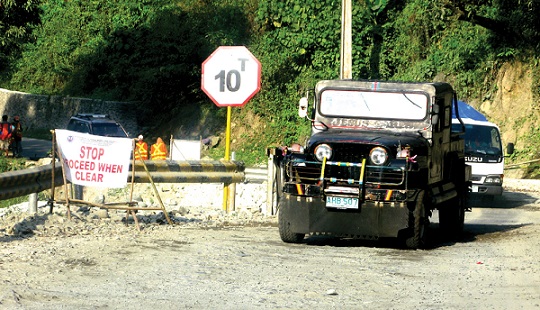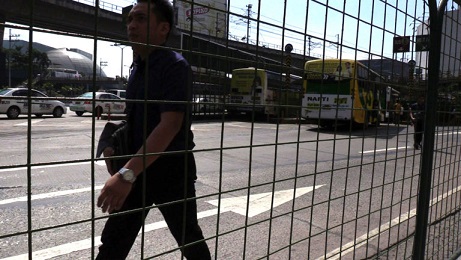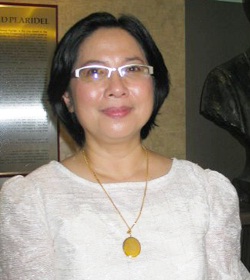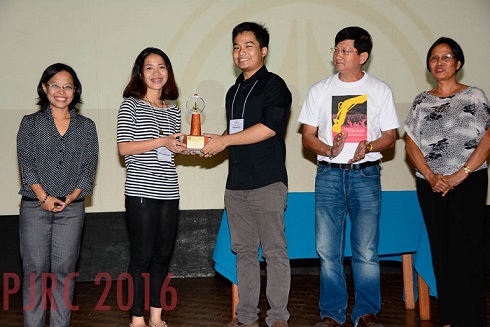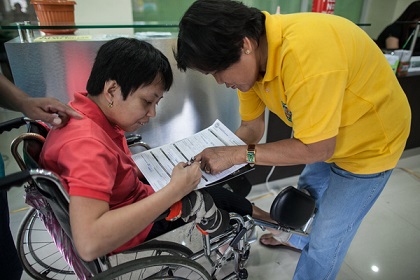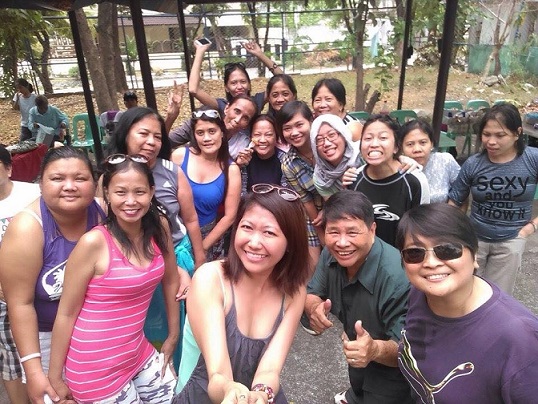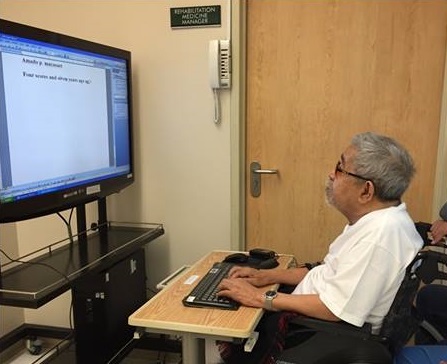By Dinna Louise C. Dayao
They were all in their teens. John Russel Garcia, John Paul Tena, Kirby Bokingo, Jaymee Gubaton, Bren Loren Calabines, and Rodalyn Bautista were graduating Grade 10 students.
They had their whole lives ahead of them: graduations, college, careers. But everything ended in a fiery crash on a road in Tagaytay in the wee hours of January 17, 2016.
It started as a joyride. According to news reports, the youngsters were in a car driven by Calabines, who had a student license. It was his father’s car; the boy reportedly took it without his parent’s permission. The car hit a concrete barrier and several trees before bursting into flames. All six teens died in the horrific crash.
Every hour, someone dies on our roads. Every day, 28 people don’t make it home alive. In a year, that adds up to 10,379 people—or about 188 busloads.
The high costs of road carnage
It’s about time that the CEO of our country made road safety a development priority. Road crashes take a heavy toll on our society and economy.
• Road crashes tip poor families into deeper poverty.
These families have less savings and assets to absorb the shock of having a family member killed or injured in a crash. A study showed that seven out of 10 poor families reported their income to have decreased after a road death. To cover the loss of income, six out of 10 poor households were forced to take a loan after a road death.
• Injuries from road crashes strain our public health system.
When the poor get hurt in a road crash, they seek medical attention in public hospitals. These injuries place a huge burden on health care services. In general, public hospitals in the Philippines shoulder an average of 25% to 75 percent of the victims’ total costs of medication and treatment.
• Road crashes drain a whopping ₱394.6 billion of our country’s GDP.
Ricardo Sigua heads the road safety research lab at the University of the Philippines National Center for Transportation Studies (UP NCTS). He estimated that 2.6 percent of our GDP is lost due to road crashes. In 2004, that loss amounted to ₱105.2 billion.
In 2015, the Philippines had an estimated GDP of ₱15.1 trillion. You do the math.
8 questions
Calling on the five candidates running for president! Please answer the following questions:
1. What infrastructure will you build to keep pedestrians safe?
Walking in Metro Manila is no walk in the park. The sidewalks are narrow. Vendors and motor vehicles often encroach on what little space there is. The footbridges are often steep, unfriendly, and inconveniently located.
As a result, walking in the megacity can be fatal. More than 57,877 persons on foot were injured or killed in Metro Manila from 2005 to 2015, said Thinking Machines. “Pedestrians made up 46.2 percent of Metro Manila’s 4,024 road fatalities since 2005,” said the data science consultancy. “That’s more than the number of drivers (39.8 percent) or passengers (14 percent) that were killed.”
2. Will you build protected bicycle lanes?
Pedal pushers in many parts of the country put up with dirty air, reckless drivers, and the lack of well-designed bicycle lanes. Yet they persist in biking because it cuts travel costs and times.
Protected bike lanes are physically separated lanes that are exclusively for people on bicycles. These lanes will keep them alive and make the roads safer for everyone. In addition, protected lanes are good for people, the planet, and profits. These lanes help make for fairer cities, too.
3. How will you make public transit safe?
Eight out of 10 people in Metro Manila ride buses, jeeps, taxis, and the trains. That figure includes children, the elderly, and persons with disability.
Yet public utility vehicles figure regularly in road crashes. According to a study from UP NCTS, the people who ride public buses are six times more at risk of being in a road crash than are private car passengers. Bus passengers are five times more likely to be in a crash than are riders of jeeps and UV express service vehicles.
4. How will you improve road safety laws and their enforcement?
The World Health Organization (WHO) has identified five key risk factors: speed; drinking and driving; motorcycle helmets; seatbelts and child restraints; and distracted driving. Well-designed measures that address these risks will make the roads safe.
5. How will you make motor vehicles safer?
It’s time for drivers to stop claiming that their vehicles “lost brakes.” All vehicles should pass basic safety standards. They should include safety features, such as seat belts, front-impact regulations, and electric stability control, said Etienne Krug, head of WHO’s disability, violence and injury prevention unit.
6. How will you enhance post-crash response?
Further enhancing trauma care systems will guarantee the prompt treatment of those with life-threatening injuries, said the WHO. The bereaved, on the other hand, will need emotional and legal support as they attend investigations and court hearings.
7. How will you ensure that the country meets its goal of halving road traffic fatalities by 2020?
In 2015, the Philippines joined member states of the United Nations in adopting the 17 sustainable development goals (SDGs). Road safety targets are included in the SDGs:
“Goal 3: Ensure healthy lives and promote well-being for all at all ages:
3.6. By 2020, halve the number of global deaths and injuries from road traffic accidents”
“Goal 11: Make cities and human settlements inclusive, safe, resilient and sustainable:
11.2. By 2030, provide access to safe, affordable, accessible and sustainable transport systems for all, improving road safety, notably by expanding public transport, with special attention to the needs of those in vulnerable situations, women, children, persons with disabilities and older persons”
8. What will you personally do to make our nation’s roads safe?
Road safety is everyone’s business. Still, you, as the country’s leader, will have a big role to play.
“Political will is needed at the highest level of government to ensure appropriate road safety legislation and stringent enforcement of laws by which we all need to abide,” said WHO Director-General Dr. Margaret Chan. “If this cannot be ensured, families and communities will continue to grieve, and health systems will continue to bear the brunt of injury and disability due to road traffic crashes.”
#SafeRoadsPH
Take heart, dear next leader. Road crash injuries and deaths can be prevented.
And investments in road safety in developing countries, like the Philippines, can be very cost effective. According to a report from the Asian Development Bank, “some studies suggest that spending 10% of the current costs of road crashes on safety may prevent 70% of those costs in future.”
Just think: Spending 10 percent of the ₱394.6 billion lost from the country’s GDP due to road crashes may save 70 percent of that huge sum. Imagine investing ₱39.4 billion in life-saving laws and infrastructure. Picture all the lives that can be saved. And visualize all the schools, mass transit systems, parks, and feeding programs that can be funded with the billions of pesos saved.
Dear next president, what will you do to make #SafeRoadsPH a reality during your watch?
Dinna Louise C. Dayao (dinnadayao@gmail.com) is an independent writer and editor. She is one of the participants in the Road Safety Journalism Fellowship. The fellowship is organized by the World Health Organization, in collaboration with the Department of Transportation and Communication and in partnership with VERA Files.
The above article first appeared in Rappler.
